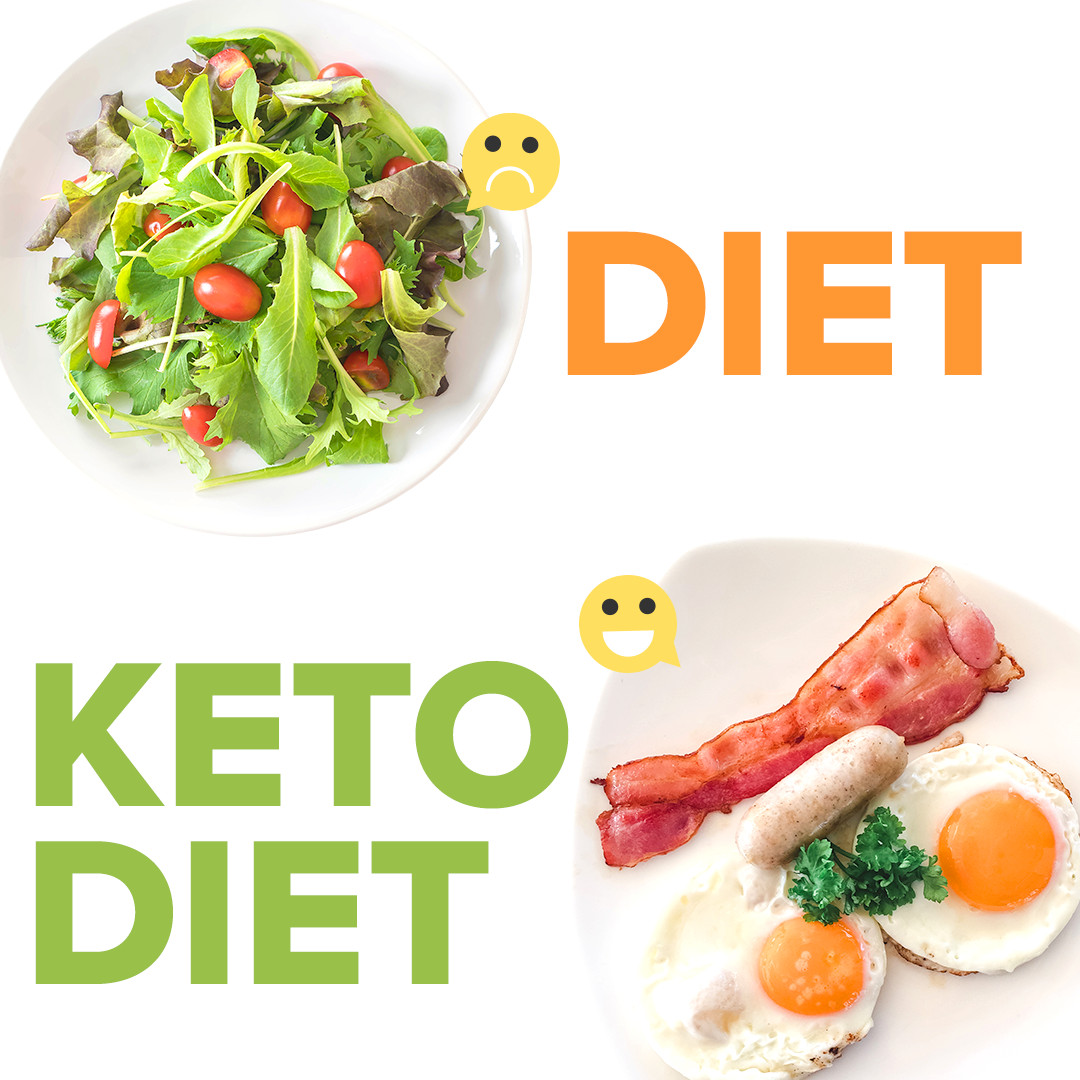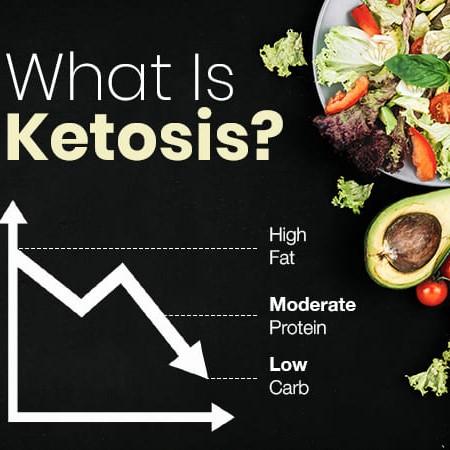· Introduction ·
If you are interested in improving your health and fitness, you may have heard about the ketogenic diet. This diet has been growing in popularity over the past few years, but what exactly is it, and how does it work? In this post, we will dive into the basics of ketosis and the ketogenic diet, explaining what it is and how it can benefit your health.
What is Ketosis?
Ketosis is a metabolic state in which your body burns fat for energy instead of carbohydrates. Normally, your body gets its energy from glucose (sugar in your blood), which is derived from carbohydrates in your diet.
However, when you restrict your carbohydrate intake, your body begins to break down fat for energy instead. This process produces ketones, which are molecules that your body can use for fuel.
As we have mentioned in other articles, it is important to understand that regardless of whether the body uses fat for energy, in the end, for a diet to be successful, we have to consume fewer calories than the body consumes in the day.
The body is a very intelligent machine and even if we are in a state of Ketosis, if we consume more calories than it needs, the body will end up converting all those calories back into fat for storage.
How Does the Ketogenic Diet Work?
 The ketogenic diet is a low-carbohydrate, high-fat diet that is designed to induce ketosis. By restricting your carbohydrate intake to a very low level (typically less than 50 grams per day but it depends on each person), you force your body start burning fat for energy. This can result in rapid weight loss, as your body begins to use stored fat for fuel.
The ketogenic diet is a low-carbohydrate, high-fat diet that is designed to induce ketosis. By restricting your carbohydrate intake to a very low level (typically less than 50 grams per day but it depends on each person), you force your body start burning fat for energy. This can result in rapid weight loss, as your body begins to use stored fat for fuel.
In addition to weight loss, there are many other potential benefits of the ketogenic diet. Some studies suggest that it may improve blood sugar control, reduce inflammation, and even have neuroprotective effects.
It has great benefits that could make this diet more attractive regardless of weight loss.
Benefits of Ketosis and the Ketogenic Diet
Here are some of the key benefits of ketosis and the ketogenic diet:
Weight loss: It can help you lose weight quickly and efficiently.
Improved blood sugar control: Because is low in carbohydrates, it can help regulate blood sugar levels, making it an attractive option for people with diabetes or high blood sugar.
Reduced inflammation: Some studies suggest that it may have anti-inflammatory effects, which is beneficial for people with arthritis.
Neuroprotective effects: Ketones may have neuroprotective effects, this may help people with neurological disorders such as Alzheimer or Parkinson.
Potential Risks of Ketosis and the Ketogenic Diet
While the ketogenic diet can be effective to lose weight and other benefits, it is important to be aware of the potential risks.
Because converting fat into ketones for energy requires more work from the liver and kidneys, the diet has certain risks for some groups of people.
Also like many other restrictive diets, this one can have some temporary side effects if not done correctly. Here are some of the main risks associated with ketosis and the ketogenic diet:
Keto flu: When you first start the ketogenic diet, you may experience symptoms such as headaches, fatigue, and nausea. This is known as the “keto flu,” and it is a common side effect at the beginning of the diet.
Nutrient deficiencies: Because the ketogenic diet is so low in carbohydrates, it can be difficult to get enough fiber and certain vitamins and minerals.
Risk of dehydration: When your body is in ketosis, it produces more urine. It’s important to Staying Hydrated for Optimal Health.
On the other side it is safe and effective for many people, but there are some potential groups of people who may be not recommended for:
Individuals with liver or kidney disease: The extra strain on the liver and kidneys, makes it unsuitable for them.
Children: The ketogenic diet may not be suitable for children. In the growth stages, the best are balanced diets and the consumption of all foods and nutrients .
Athletes or individuals who engage in high-intensity exercise: The ketogenic diet may not provide enough carbohydrates to fuel high-intensity exercise. This has not been proven but it is a risk that has been studied.
- Pregnancy or breastfeeding: The ketogenic diet is not recommended for pregnant or breastfeeding women, as it may not provide enough nutrients for the developing fetus or infant.
Physical Requirements for the Ketogenic Diet

While the ketogenic diet can be a safe and effective, like in any type of diet, program or treatment, it is always important to meet some requirements for its success:
Generally healthy: If you have any underlying medical conditions, such as liver or kidney disease, it is important to consult with a healthcare professional.
Willingness to follow a strict diet: The ketogenic diet requires strict adherence to a low-carbohydrate, high-fat diet. It may not be suitable for individuals who struggle with following a restrictive diet.
Ability to monitor blood sugar levels: If you have diabetes or other blood sugar-related conditions, it is important to monitor your blood sugar levels closely while on the ketogenic diet.
· Conclusion ·
Ketosis and the ketogenic diet can be a powerful tool for improving your health and fitness, but it is important to be aware of the potential risks and to consult with a healthcare professional before starting the diet.
Now that you understand the basics of ketosis, you can make a decision about whether this approach is right for you.
If you are looking for a new meal plan that is sustainable and goes in hand with your tastes and goals, check this comparison we made of three of the most popular diet programs on the web or read our guide on how to create your own sustainable meal plan.
Consult with a healthcare professional before making any dietary changes and always listen to your body to ensure that the diet is working for you.





























































 Braceability
Braceability
 Yoga Download
Yoga Download










 ShipBob:
ShipBob:

 Sihoo
Sihoo




















